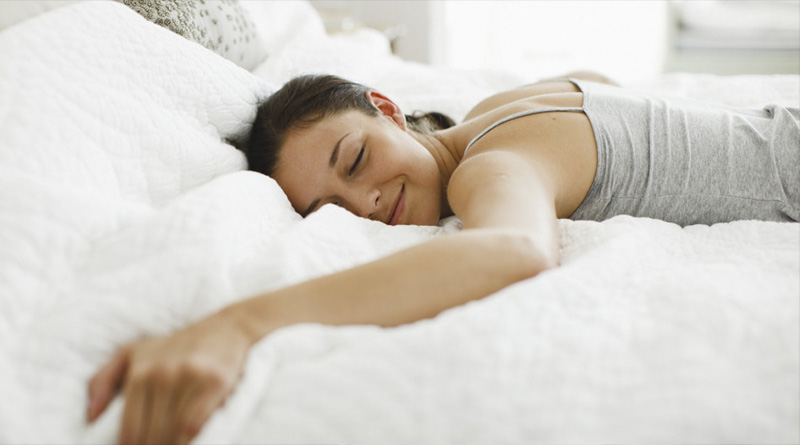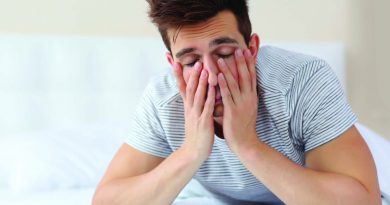20 Tips For Better Sleep
By Candice Esposito, ND
It is estimated that one in four Canadians are sleep deprived, but I bet the numbers are even greater. Unfortunately, a lot of Canadians brush off their sleeping problems as harmless and a few restless nights easily turns into years of broken sleep patterns. But, be aware that bad or broken sleep is never harmless. Sleep deprivation can contribute to depression, heart disease, pain, obesity, diabetes, among other serious health issues.
Insomnia is a very common concern. I encounter it almost on a daily basis in practice and it’s a concern I work with patients on right away because the quality of our sleep plays a large part in determining the quality of our health.
Why a good night’s sleep matters
There are a lot of things happening in our body while we sleep, but perhaps the most important may be the secretion of growth hormone, what you may have heard called, “the anti-aging hormone.” Growth hormone stimulates tissue regeneration (it essentially helps our body heal), liver regeneration, muscle building, breakdown of fat, normalization of blood sugar levels, plus a whole host of other important processes.
The other amazing thing that sleep can do is that it acts as an antioxidant. Free radicals, molecules that cause oxidative damage (you can think of it as our body’s rusting), are removed while we sleep. So, you can understand how important sleep is to slow down the aging process, to help us maintain a healthy weight and to prevent illness like heart disease and diabetes. During the day our adrenal glands produce the hormone cortisol, which establishes our daily rhythm – that we wake in the morning and are sleepy in the evening.
Normally, cortisol is high in the morning and lessens throughout the day, parallel to our energy levels. Another hormone, melatonin, which is produced by the pineal gland in our brain, begins to play its role when the sun goes down. Our body senses fading light and signals melatonin to rise. At this point, cortisol should be at its lowest, allowing you to fall asleep. Once asleep, your body then begins to produce growth hormone and when it’s allowed to do its job we wake rested and rejuvenated.
Growth hormone cannot coexist with cortisol. They are an- tagonistic. When cortisol is high it suppresses the production of growth hormone. Therefore, our sleep is thrown off when cortisol levels remain high at night. What causes this? Stress, eating at night, watching intense movies or TV shows, arguing before bed or performing challenging mental or physical work can all raise your cortisol levels. Some of the tips I recommend below actually work by helping to lower your cortisol levels.
Our bodies play this intricate hormonal dance every night and day. Based on this knowledge it makes sense that we try to follow the rhythms of natural light as much as possible. Light or lack of light provides cues to our body that determine hormone production and our sleep cycle. This means longer waking hours and more activity in the summer, more sleep and rest in the winter.
Think about how this affects people who work night shifts. No wonder it is so difficult to maintain hormonal and mental/emotional balance when working at night. Darkness triggers melatonin and is crucial to a good night’s sleep. Avoiding sleeping while it’s dark out disturbs our natural hormonal rhythms, as does sleeping in a room full of daylight. Seasonal affective disorder (SAD) is a diagnosis given to people who become depressed during the winter months.
I’d argue it’s actually a result of our society’s attempt at defying natural rhythms. We try to fit the same amount of activities and busyness into a short winter’s day as we do in a long summer’s day. This places stress on our hormonal system and as our hormonal system becomes imbalanced the depression sets in.
Improve your sleep
The way to get more restorative sleep is to first identify the factors affecting your sleep. Factors like an overactive bladder, pain, stimulants like coffee and chocolate, hypoglycemia, anxiety or repetitive thoughts, alcohol, depression and hormonal imbalances can all negatively affect your sleep.
Consult your medical or naturopathic doctor to rule out any conditions that may cause insomnia, such as sleep apnea, thyroid problems, menopause, fibromyalgia, chronic fatigue syndrome and heavy metal toxicity. Once the factors have been identified and medical conditions ruled out, utilize the following suggestions to help restore your sleep:
1) Make sleep a priority in your life. It is just as important as food and water.
2) Create a sleep ritual. Start approximately two hours before bed. A special set of little things you do to prepare yourself physically and mentally for sleep.
3) Go to bed and get up at the same times each day to help your body get into a regular sleep rhythm.
4) Go to bed only when you are sleepy. Listen to the signals your body is giving you.
5) To help give your body a little “push” into a regular sleep rhythm consider waking a half hour earlier than normal. This is helpful for those that have trouble falling asleep.
6) Maintain an environment conducive to sleep. The room should be completely dark and quiet.
7) Your bedroom should be cool and your bed warm and comfortable.
8) Only use your bed for two purposes: sleep and sex. Do not watch television, read in bed, work in bed, etc. This helps train your mind and body to associate your bed solely with sleep.
9) Avoid caffeine, especially after 2 p.m.
10) Avoid alcohol. Although alcohol may help you get to sleep it causes a fragmented sleep.
11) Avoid any stimulating activities, at least one hour prior to bed, such as watching an intense movie or TV show, doing a puzzle or playing games on the computer.
12) If you are awake for more than 20 minutes in bed, it’s better to get up and engage in something that is boring, something that does not require much thinking. You only want to associate your bed with sleep, not tossing and turning around all night.
13) Expose yourself to daylight for at least 20 minutes each day. This helps regulate melatonin levels.
14) Eat at least three hours before bed. If your body has to deal with food it will focus its energy on digestion, not sleep.
15) Do not exercise vigorously before bed. Exercise tends to have a stimulating effect.
16) If you are prone to repetitive thoughts schedule a time to write your worries down. For example, one hour before bed, write down whatever it is that is causing you anxiety, what you have to do the next day, etc. Do not edit yourself – just let it all come out. This helps free up your mind for a more restful sleep.
17) Use a hot water bottle or heating pad to warm your middle. This raises your core body temperature and helps set the right conditions for sleep.
18) Consider removing any sources of electromagnetic fields from your bedroom. For example, switch your electrical alarm clock for one that runs on batteries. Electromagnetic fields have been shown to disrupt our pineal gland, which is responsible for regulating melatonin production.
19) Practice stress management techniques, such as meditation, progressive muscle relaxation, light stretching, guided imagery, music therapy or massage shortly before bed to help you relax.
20) Take a hot bath. Raising your body temperature before bed helps to induce sleep. I recommend adding one to two cups of Epsom salt along with one cup of baking soda to the bath, which will help relieve muscle tension. You’ll notice none of the above tips refer to medications. Over 50 per cent of cases of insomnia are due to psychological or physiologic factors that can be handled without resorting to inducing sleep with drugs.
Synthetic sleeping pills might extend the quantity of your sleep, but they do not allow the body to do its job of healing and lowering inflammation as a natural sleep will. Herbal teas like passionflower and chamomile can be taken before bed to help calm your nerves.
Magnesium is another option to relax the nervous system and muscles, especially if you experience chocolate cravings or suffer from restless leg syndrome, which may be signs of possible magnesium deficiency. Sleep is one of the most powerful healing forces available to you. Rest easy!
Candice Esposito is a naturopathic doctor at Algoma Natural Healing Clinic in Sault Ste. Marie.




